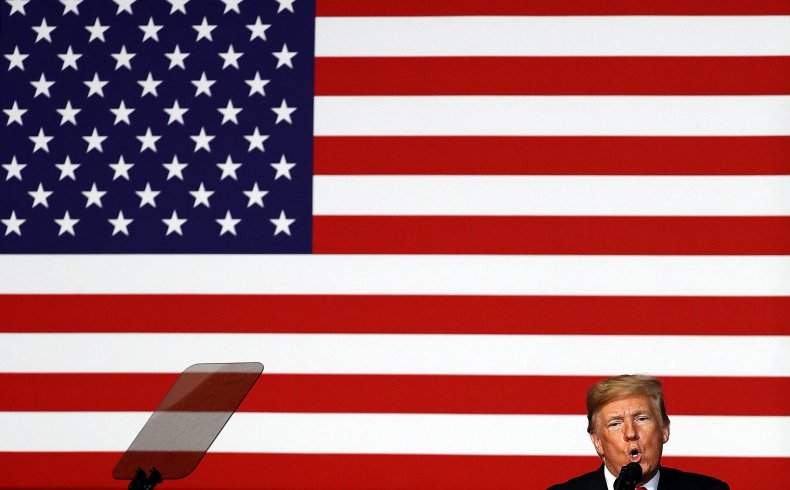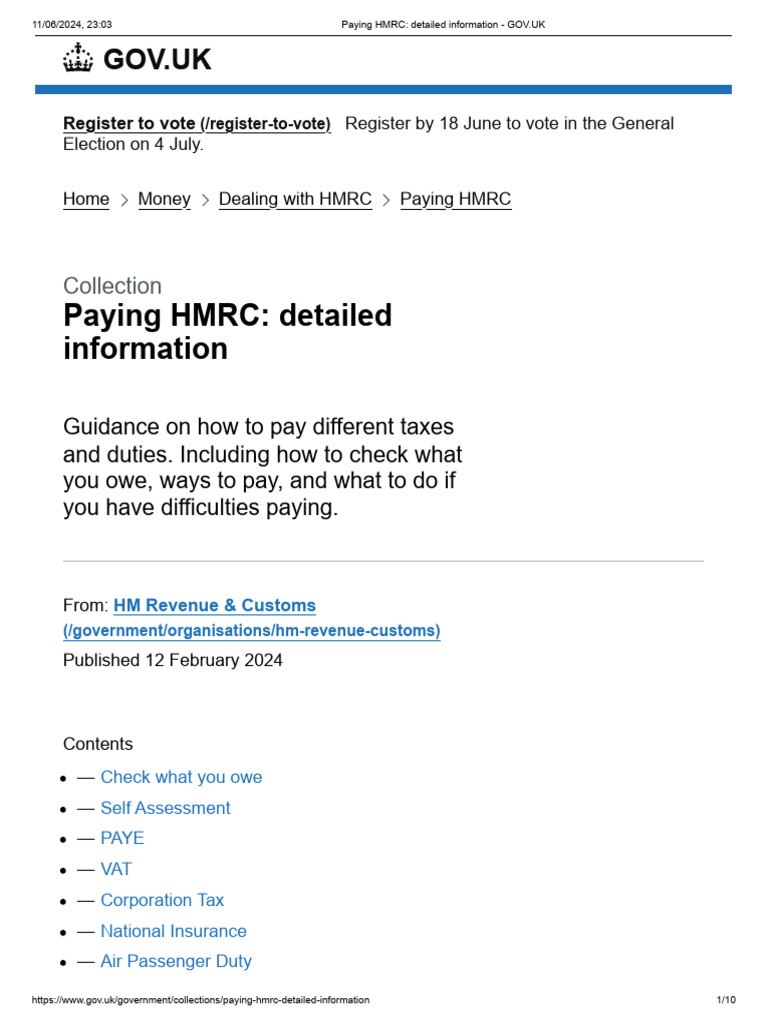Analysis: AI Companies And The Trump Bill – A Pyrrhic Victory?

Table of Contents
Short-Term Gains for Established AI Companies
The Hypothetical AI Regulation Bill, in its current form, might offer some short-term advantages to large, established AI companies. These established players are often better equipped to navigate complex regulatory landscapes and capitalize on opportunities created by new legislation.
- Reduced Competition from Smaller Startups: Increased regulatory hurdles and compliance costs could significantly impact smaller startups with limited resources, potentially creating a less competitive environment. This allows established companies to maintain their market dominance.
- Potential for Lucrative Government Contracts and Subsidies: The bill may include provisions for government funding and contracts specifically earmarked for established AI companies deemed "reliable" and "compliant." This injection of capital could further solidify their positions.
- Strengthened Lobbying Power Influencing Future Legislation: Established AI companies often possess considerable lobbying power, enabling them to influence future legislation in their favor. The bill’s passage might strengthen their ability to shape the regulatory environment to their benefit.
- Examples of Specific Clauses Benefiting Established Players: Hypothetical examples could include clauses prioritizing companies with existing robust security infrastructure or those already compliant with certain data privacy standards, indirectly excluding smaller players.
Long-Term Hurdles for AI Innovation
While some established AI companies might enjoy short-term gains, the long-term effects of the Hypothetical AI Regulation Bill on AI innovation are potentially detrimental. Excessive regulation can stifle the very creativity and experimentation crucial for technological advancement.
- Increased Bureaucratic Red Tape and Compliance Costs: Complex regulations often lead to increased administrative burden and compliance costs, diverting resources away from research and development. This disproportionately affects smaller companies and slows down the pace of innovation.
- Restrictions on Data Access and Usage, Slowing AI Development: The bill might include provisions restricting access to crucial data sets, hindering the ability of AI researchers and developers to train and improve their algorithms. This limitation stifles the progress of AI technologies.
- Potential for Stifling Competition and Hindering the Emergence of Disruptive Technologies: A regulatory environment favoring established players can stifle competition, reducing the incentive for smaller companies to develop disruptive technologies and enter the market.
- Examples of Clauses that Could Impede Innovation: Clauses mandating lengthy approval processes for new AI applications or requiring excessive documentation for data usage could significantly impede innovation.
Impact on Specific AI Sectors (e.g., Healthcare, Finance, Autonomous Vehicles)
The Hypothetical AI Regulation Bill will likely have varied impacts across different sectors utilizing AI. The specific regulations will dictate the level of disruption and adaptation required in each area.
- Healthcare: The bill's impact on data privacy regulations could significantly affect AI-driven diagnostics and personalized medicine. Stricter regulations might hinder data sharing necessary for training advanced medical AI systems.
- Finance: The bill could impact algorithmic trading and fraud detection by imposing new restrictions on data usage and model transparency. This could slow down innovation in this crucial sector.
- Autonomous Vehicles: Regulations concerning safety and testing procedures for self-driving cars could be significantly altered, potentially delaying the widespread adoption of autonomous vehicle technology.
- Specific Examples of How the Bill Affects Each Sector: For instance, stricter data anonymization requirements in healthcare might limit the effectiveness of AI diagnostic tools, while heightened security protocols in finance could increase the cost of developing AI-powered fraud detection systems.
International Implications and Global Competitiveness
The Hypothetical AI Regulation Bill's impact extends beyond the US borders, potentially affecting the nation's global competitiveness in the AI arena.
- Potential Loss of Global Leadership in AI Research and Development: Overly stringent regulations could discourage international talent from coming to the US, leading to a decline in AI research and development.
- Impact on Attracting Foreign Talent and Investment in the US AI Sector: A complex and burdensome regulatory environment might deter foreign investment and discourage highly skilled researchers and developers from choosing to work in the US.
- Comparison with AI Regulations in Other Countries (e.g., China, EU): A comparison of the bill with AI regulatory frameworks in other countries like China and the European Union reveals potential competitive disadvantages for the US if the bill becomes law.
- Analysis of Potential Trade Implications: The bill’s provisions might create trade barriers and retaliatory measures from other nations, further impacting the competitiveness of the US AI industry.
Public Perception and Ethical Considerations
Public opinion and ethical concerns play a crucial role in shaping the debate surrounding the Hypothetical AI Regulation Bill.
- Public Opinion Polls and Media Coverage of the Bill: Analyzing public opinion polls and media coverage reveals the level of public support or opposition toward the proposed regulations and their potential consequences.
- Concerns about Bias in AI Algorithms and Potential for Discrimination: The bill's provisions regarding fairness and accountability in AI algorithms are crucial to addressing potential biases and discriminatory outcomes.
- Debate Surrounding Data Privacy and Surveillance: The balance between data privacy and the need for data to train effective AI systems is a central ethical concern surrounding the bill.
- Ethical Implications of AI Deployment in Various Sectors: The ethical implications of AI deployment in sectors like healthcare, finance, and law enforcement need careful consideration and regulation.
Conclusion: Is it a Pyrrhic Victory for AI Companies?
The Hypothetical AI Regulation Bill presents a complex scenario for AI companies. While established players might enjoy some short-term benefits, the long-term risks to innovation, global competitiveness, and ethical considerations are significant. The potential for a Pyrrhic victory, where short-term gains are overshadowed by long-term negative consequences for the AI industry's overall growth and competitiveness, is substantial. To ensure a future where AI thrives and benefits all, we need a robust and balanced regulatory framework that fosters innovation while addressing ethical concerns. Engage in the conversation and help shape the future of AI legislation. Learn more about the impacts of the Hypothetical AI Regulation Bill and voice your concerns.

Featured Posts
-
 Nyt Mini Crossword Answers For March 22 Complete Solution Guide
May 20, 2025
Nyt Mini Crossword Answers For March 22 Complete Solution Guide
May 20, 2025 -
 F1 Drama Hamilton Och Leclerc Far Boeter
May 20, 2025
F1 Drama Hamilton Och Leclerc Far Boeter
May 20, 2025 -
 Tyler Bate Returns To Wwe Raw Match Predictions And Analysis
May 20, 2025
Tyler Bate Returns To Wwe Raw Match Predictions And Analysis
May 20, 2025 -
 Could You Be Due An Hmrc Tax Refund Check Your Payslip
May 20, 2025
Could You Be Due An Hmrc Tax Refund Check Your Payslip
May 20, 2025 -
 Dzhennifer Lourens Vdruge Stala Mamoyu Pidtverdzhennya Ta Podrobitsi
May 20, 2025
Dzhennifer Lourens Vdruge Stala Mamoyu Pidtverdzhennya Ta Podrobitsi
May 20, 2025
